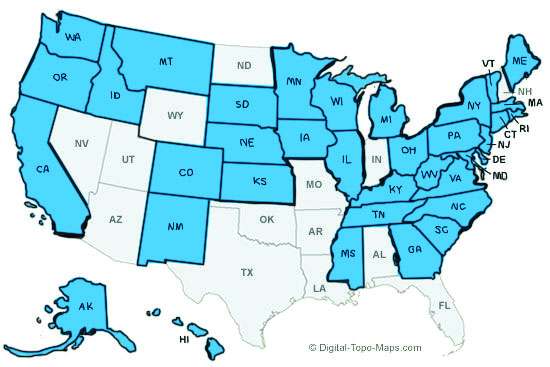Net Neutrality As Of Now

A map of the states that have made initiatives to protect net neutrality.
As many are already well-aware, in a ¾ vote the Net Neutrality laws of the 2008 Obama-era were repealed at the federal level. The FCC voted in favor of ending this period, and they were not met willingly. Net Neutrality operates on the basis that internet providers cannot regulate the speed and access of content on the web, based on the individual user and data provider. For example, if you were streaming on Hulu and Netflix intentionally throttled and slowed your speed. Users could also be charged extra to access certain websites, the specific devices used to access media, as well as other factors.
Dr. Steven Horn, President of the EvCC Computer Club said, “In the realm of net neutrality, your personal website comes up just as fast, people have access to it just as efficiently or completely as any government or corporate website—and that’s what we’d be losing.”
Many states and populations have not responded favorably. 22 State Attorneys General filed suits against the FCC.
In Washington State, Governor Jay Inslee has been particularly vocal regarding the repeal. In a letter to the FCC, he stated, “All Americans, as a matter of principle, should enjoy equal access to the educational, social and economic power of the internet. Ensuring this important technology remains free and unfettered is critical both to our personal freedoms and to our country’s economy.” On March 5th, 2018, he signed a bill that safeguarded open and free internet. On that day, Washington became the first state to make these protections into law. But because of the action was taken on behalf of the state and Governor, they are both liable to be sued by telecom providers.
Oregon has since followed suit. But, not all the states have enacted or even tabled such policies—if any.
Arguments against net Neutrality laws have been made by the FCC’s chief, Ajit Pai. He argues that it will make companies and providers more competitive, create a stronger infrastructure, and create more jobs.
Dr. Horn is not convinced by this argument, observing that creating more jobs seems to always serve as a political fallback to controversy. He also inferred this to be a way to further regulate profits for these corporations. “The open internet has mandated that IPS providers couldn’t privilege one website over the other, so we’re really losing something if these private companies are not affected by any democratic people in any democratic way—they can decide to privilege some website services over others.”








